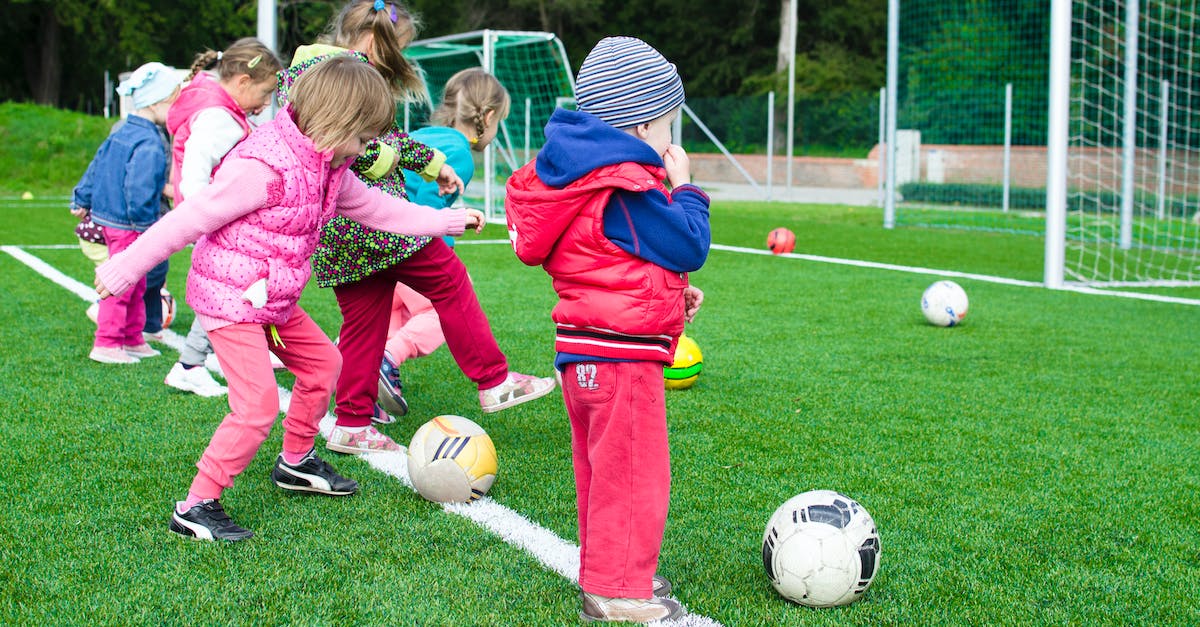As a parent, you’re always looking ahead, trying to set the stage for your child’s success. With a new year comes a fresh start and the perfect opportunity to establish goals that’ll help your little one grow and thrive. Whether it’s academic achievements, social skills, or personal development, setting clear objectives is key to a fruitful year.
You know your child better than anyone else, and you understand that every milestone counts. From mastering the art of sharing to acing that spelling bee, the goals you set now can shape your child’s future. Let’s dive into how you can craft a roadmap for this year that’s both challenging and achievable, ensuring your child’s journey is filled with learning, growth, and joy.
Setting Goals for Academic Achievements
When you’re considering your child’s academic growth, it’s crucial to set specific targets that align with their abilities and aspirations. Goals for academic achievements can range from improving grades in certain subjects to developing effective study habits. Identifying measurable milestones is key to recognizing progress throughout the year.
Start by evaluating your child’s previous academic performance. Look for patterns and areas that could use enhancement. You might focus on:
- Enhancing reading comprehension skills
- Mastering a new level of math
- Increasing writing proficiency
- Expanding vocabulary
Realistic yet challenging goals will push your child to strive for greater heights. For instance, if your child has been consistently getting B’s in science, aim for an A- in the next grading period. Establish a regular study schedule and identify resources, like tutoring, that could offer additional support.
Collaborating with teachers can also provide vital insights. They’ll give you a professional perspective on where your child stands academically and what steps will be most effective in helping them advance. Periodic check-ins will allow you to adjust goals as needed, ensuring they remain attainable.
Technology offers innovative tools to aid in academic success. Encourage your child to use educational apps and online resources that make learning engaging and interactive. Digitally tracking progress can be a motivating factor for children, as they see real-time updates of their achievements.
Investing in your child’s education involves more than just setting goals. It’s about fostering an environment that values learning and celebrates each small victory along the way. Encouraging positivity and perseverance despite obstacles is vital for academic accomplishment. Remember, success is not solely represented by grades but also by the knowledge and skills your child gains throughout their educational journey.
Nurturing Social Skills and Relationships
Nurturing your child’s social skills and relationships is as crucial as academic success. You’ll find that encouraging your child to interact positively with peers lays a foundation for lifelong interpersonal skills. Start by setting goals for social development that align with their age and personality. Consider these pointers to aid their growth:
- Encourage participation in group activities or sports
- Teach conflict resolution techniques
- Foster empathy by discussing feelings and perspectives
Help your child recognize the value of teamwork and cooperation. Involvement in group projects at school or in the community can teach them how to work alongside others, share ideas, and respect different opinions. Regular playdates or outings with peers can also boost their confidence in social settings and help them build lasting friendships.
Effective communication is key to nurturing relationships. Encourage your child to express their thoughts and listen actively to others. Role-playing is an excellent way to practice conversations and understand verbal and non-verbal cues. Moreover, praise their efforts to communicate effectively, reinforcing positive social interaction habits.
In this digital age, it’s also important to guide your child on how to navigate social media responsibly. Teach them about online etiquette, the impact of digital footprints, and the importance of maintaining privacy. This will not only benefit them in their personal lives but also in future academic and professional endeavors.
By setting specific objectives in developing their social acumen, you’re equipping your child with the tools they need for thriving social relationships. Always remember, fostering their social abilities is a continuous process that requires patience and consistent effort.
Encouraging Personal Development
Personal development in children goes beyond academics and social skills—it’s about helping them grow into well-rounded individuals. When setting personal development goals for your child this year, consider areas that contribute to their identity and self-esteem.
Cultivating Interests and Hobbies can play a crucial role in personal growth. Explore various activities to discover what genuinely sparks joy and enthusiasm in your child. Whether it’s art, sports, music, or coding, engaging in hobbies provides a sense of achievement and can improve cognitive functions.
Promoting Self-Reliance is another important aspect. You’ll want to encourage your child to take on tasks independently, such as organizing their room or managing homework. This builds responsibility and prepares them for real-world challenges.
Fostering a Growth Mindset is integral to personal development. Teach your child that effort leads to success and that failure is just an opportunity for learning. Praise the process rather than the outcome—this helps them to persist in the face of difficulties.
Consider these actionable steps:
- Encourage your child to set personal mini-goals, like reading a book a month or learning a new skill.
- Provide opportunities for independent decision-making, even in small matters like choosing their clothes.
- Celebrate failures as much as successes, highlighting what was learned.
| Personal Development Areas | Actions You Can Take |
|---|---|
| Interests and Hobbies | Facilitate exploration of new activities |
| Self-Reliance | Assign age-appropriate tasks independently |
| Growth Mindset | Stress importance of effort and learning from failure |
Introducing Mindfulness and Emotional Regulation will also equip your child with the ability to handle stress and emotions better. Simple breathing exercises or yoga can greatly aid in developing a calm and focused demeanor. Encourage open conversations about feelings to promote emotional intelligence.
Remember, your support and guidance are invaluable as your child explores the vast landscape of personal development. Providing a nurturing environment while setting clear expectations can create an excellent framework for them to achieve their potential.
Individualize Goals Based on Your Child’s Strengths and Interests
Setting goals isn’t a one-size-fits-all process. Every child is unique, with their own set of strengths and passions. When you tailor goals to align with your child’s interests, you’ll find they’re more engaged and motivated to succeed. Start by identifying what excites your child. Is it music, sports, or perhaps science? Focus on these areas to set meaningful and attainable goals.
Discover and Support Their Passions
- Observe their play patterns: What activities do they lose themselves in?
- Listen to their questions and what they talk about: Which subjects spark their curiosity?
- Offer various experiences to unveil hidden talents
Once you’ve pinpointed their inclinations, help them set goals that are both challenging and achievable. If your child loves art, encourage them to work on a new painting technique. Should they have an aptitude for math, set a goal to master a higher level before the school year’s end.
Encourage Incremental Progress
Remember, the journey is as important as the destination. Break down larger goals into smaller, manageable tasks to prevent your child from feeling overwhelmed. By acknowledging small victories, you’re reinforcing their sense of accomplishment and paving the way to the bigger goal.
Prioritize Personal Development
While academic and extracurricular goals are essential, don’t overlook personal development milestones. These may involve:
- Learning a new life skill, like cooking or time management
- Improving communication abilities, especially if your child is naturally introverted
- Developing a new hobby or improving on existing ones
- Enhancing emotional intelligence, such as learning to recognize and articulate feelings
Each child will progress at their own pace, so it’s crucial to adjust expectations accordingly. Celebrate their progress, no matter how small it may seem. This approach not only boosts their self-esteem but also instills a lifelong love for learning and personal growth.
Conclusion
Setting the right goals for your child can pave the way for a year of significant growth and discovery. Remember, it’s all about balancing ambition with your child’s unique needs and interests. By customizing goals and celebrating every step forward, you’re not just helping your child succeed today—you’re instilling the skills and confidence they’ll need for tomorrow. Here’s to a year of joyful learning and meaningful milestones!


Leave a Reply